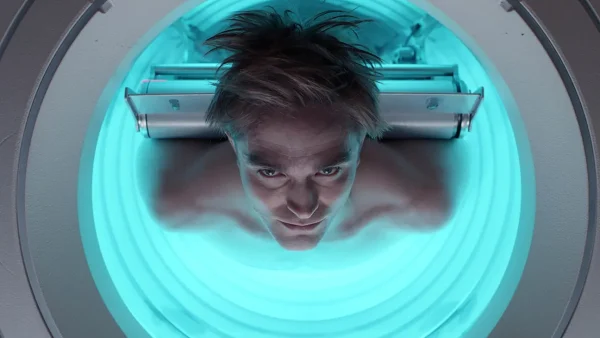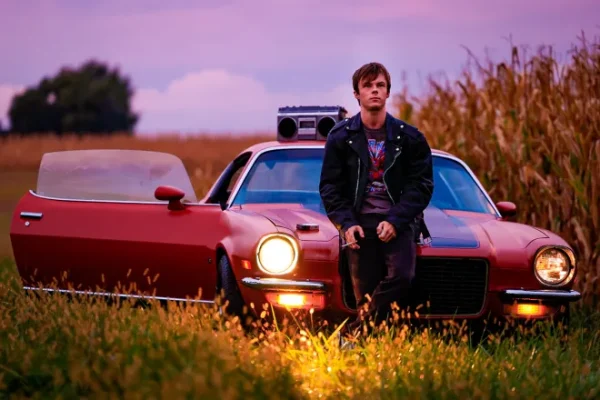Are You in Love With a Serial Killer?
How media romanticizes serial killers and how that affects the victims’ families
Within the first week of the show Dahmer premiering, 624 million people watched it, making it 660% more popular than Netflix’s next most popular show. It seems serial killers have become an iconic fixture of modern mass media. A lot of people relax to podcasts that talk about the gruesomeness of these killers and their murders. But the media portrayals of serial killers distance them from their crimes, instead focusing on a romanticized version of them. People are now seeing serial killers through a rose-tinted silver screen and we can thank the film industry.
With the recent release of Netflix’s Dahmer, people have been going a little crazy. Evan Peters, who plays Jeffrey Dahmer, is a well-loved actor and famous for roles such as Quicksilver in the X-men movies and his recurring roles in American Horror Story. Since a lot of people find him attractive, it seemed that the obsession transferred over to Dahmer too.
Jeffrey Dahmer was a serial killer that drugged, sexually assaulted, cannibalized, dismembered, and kept trophies from his victims. Each kill, is gruesome and disgusting. But, with Evan Peters playing Dahmer, many people have forgotten the dark origins of the story. There has been a recent obsession with serial killer that has taken a more disgusting turn. People have been making sexual comments, pining over Jeffrey Dahmer, and have not been separating the actor from the real killer he is portraying. When media companies create a show like this, it is crucial for both the company and consumers to use caution. When movies or shows are made with the star power or conventional attractiveness of the actor in mind, it detracts the viewer from the original message of the story and diminishes the culpability of these notorious killers.
There have been many adaptations of different serial killer stories. Most of these adaptations have the killer as the main character. A lot of famous actors have played these killers such as Zac Effron as Ted Bundy in Extremely Wicked, Shockingly Evil and Vile, Ross Lynch and Evan Peters, respectively, as Jeffrey Dahmer in My Friend Dahmer and Dahmer, and Micheal Shannon as Richard Kuklinski in The Iceman. Each cast of these movies have many well-known actors. Unsurprisingly, these portrayals have glorified the killers. Making them the main characters of these stories makes it so that their version of the story is valued over the victims’ traumatic experiences.
Serial killers are the villain in every story and giving them the spotlight they wanted is not making the situation any better. When making an adaptation of a serial killer, writers need to show all the horrible crimes these real people committed. Or get the family’s permission, and use the point of views of the victims to show just how much the murders affected these families. These filmmakers have a responsibility to tell these stories correctly and to show the victims and their families respect.
With the stories of serial killers becoming more normalized as a topic of discussion on podcasts and documentaries, people have become desensitized. Now killers are distilled in media consciousness as simply characters, not real people. Some quizzes on different sites will tell you if you know enough about serial killers or what serial killers you are. This is becoming the standard for many people. That is definitely a problem. Desensitization is affecting families too. Family members of victims, such as Eric Perry, the victim’s cousin, have taken to social media to talk about the true story of their family.
Families have had a lot to say about these adaptations of their loved ones’ murderers. A lot of them feel like they are reliving the nightmare they went through and they feel like they are getting traumatized all over again. With Dahmer, they used the victims’ real names, but never contacted the families about what they were making again. The families found out at the same time as the rest of the world. Shirley Hughs, the mother of victim Tony Hughs, said, “I don’t see how they can do that, I don’t see how they can use our names and put stuff out like that out there.” She also touched on how her son’s story didn’t happen the way it was written in the show.
Making serial killers out to be more than they actually are is a severe problem. It causes people to see them as more than horrible people and start to romanticize them. This affects families and everyone that had to go through something similar. These adaptations of serial killers’ stories need to be more responsible and more respectful. So be careful the next time you watch that show and ask yourself, are you in love with a serial killer?

Alcey Mecham is the editor and chief of the Herriman Telegraph Newspaper. She has been in Newspaper since sophomore year, was an editor her junior year,...








Keith • Feb 3, 2023 at 8:00 PM
Great article! And spot on. Good work